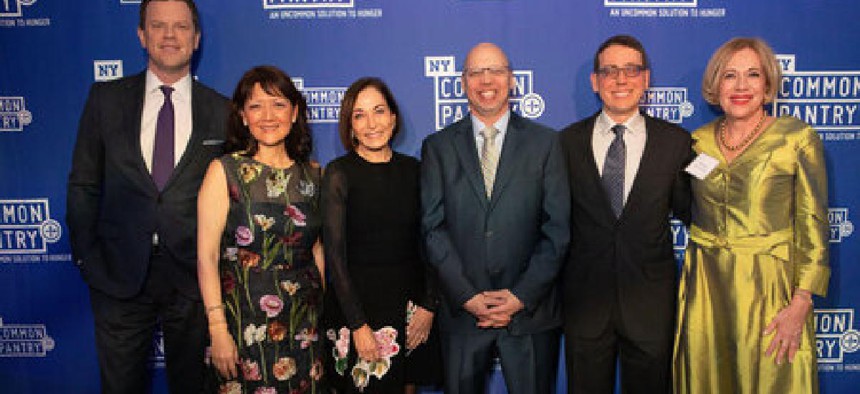New York Common Pantry raises more than $1.3 million to feed hungry New Yorkers
The Fill the Bag Benefit occurs in-person nearly two years after the pandemic

Fill the Bag Benefit Marc Goldberg Photography
New York Common Pantry held its first in-person “Fill the Bag” benefit since the coronavirus hit two years ago, raising more than $1.3 million to support its mission of feeding hungry New Yorkers.
The fundraiser took place at the Ziegfield Ballroom in Manhattan Tuesday, welcoming more than 300 supporters who had long-missed the socialization of such events. “We found, overwhelmingly, that people were excited to come back. They felt they hadn't done major events in such a long time,” said Ellen G. Miller, a spokesperson for NYCP.
The evening, which also included another 150 virtual attendees, honored Margie Sung, a 14-year veteran Wall Street hedge fund advisor, and Alex Friedman, a former office supplies business manager, who volunteered more than 2,000 hours with NYCP in total.
“It's pretty unbelievable. We are so grateful to our supporters for coming out to support the work that we do to help New Yorkers in need. And we were overwhelmed with everyone's generosity.” said Miller.
NYCP served more than 14.8 million meals to New Yorkers experiencing food insecurity and poverty during the coronavirus pandemic. As COVID-19 struck, the nonprofit saw the number of New Yorkers seeking food assistance nearly double to about 2 million and one out of four children become food insecure. Visits to food pantries were also up almost 50%.
In response to the high demand, NYCP used an innovative approach to reach a solution.
“We took our food rescue program and converted it into a mobile pantry program so that we could partner with other community-based organizations, whether they were churches, community centers or senior centers, we partnered with them so that we can bring the food to them, which would enable people not to have to travel and to still be able to receive food that they needed to support themselves and their families. That was a major innovation that we have built.” said Miller.